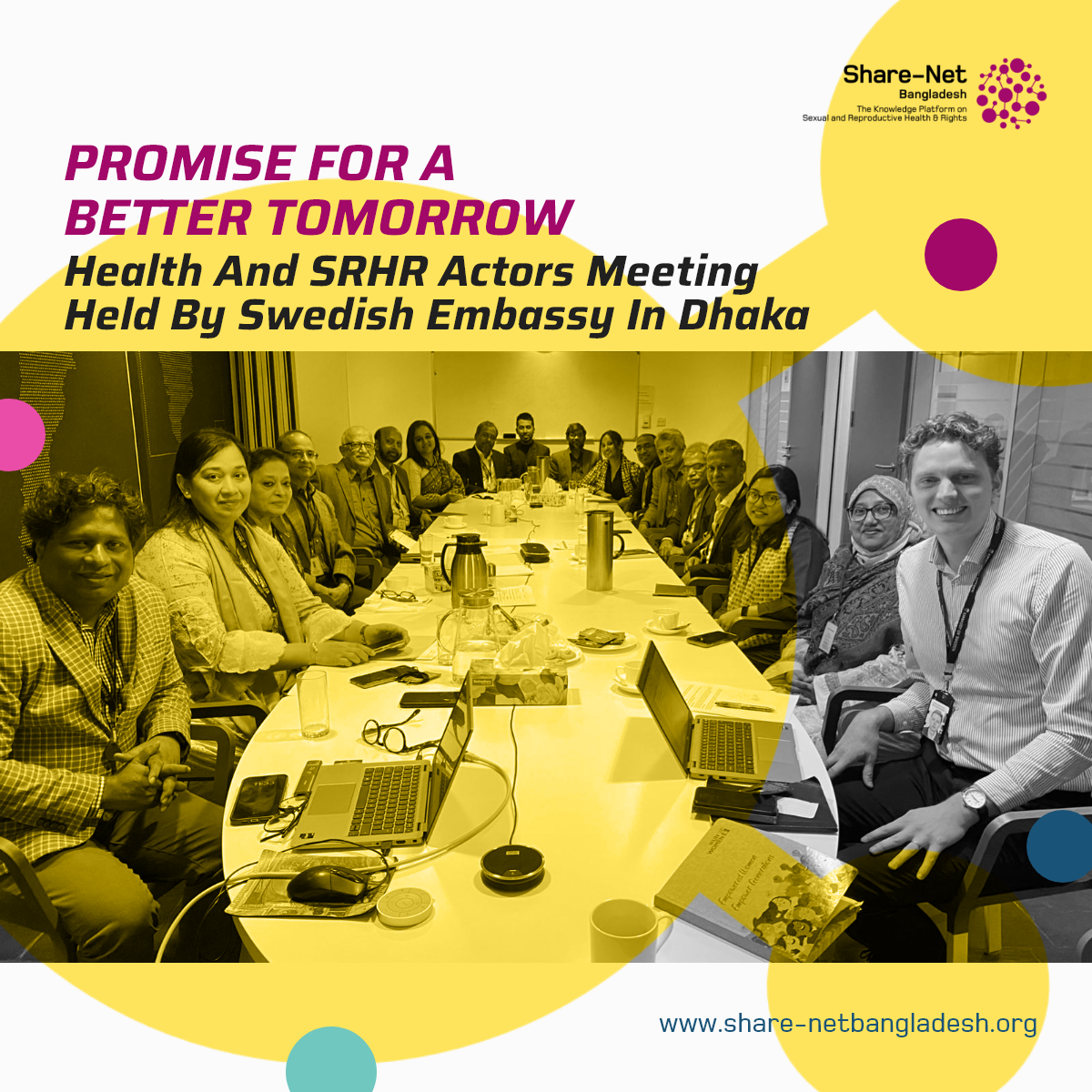Promise for a Better Tomorrow: Health and SRHR Actors Meeting Held by Swedish Embassy in Dhaka
The Swedish Embassy in Dhaka hosted the “Health and SRHR Actors Meeting” on January 8, 2025, bringing together policymakers, experts, and stakeholders to discuss poverty reduction, health equity, and Sexual and Reproductive Health and Rights (SRHR). The event, held at the Embassy of Sweden, highlighted the pressing need for strategic policies, programs, and partnerships to address the multidimensional challenges of poverty and inequities in health and SRHR.
Addressing Poverty Through Health and SRHR
The meeting emphasised a critical intersection: how poverty reduction strategies can effectively address health and SRHR challenges. Discussions centered around identifying those most vulnerable to poverty, understanding structural constraints, and leveraging Swedish expertise in addressing inequalities. Participants delved into the role of SRHR as a fundamental component of human rights and poverty alleviation.
“SRHR is not just about access to services; it’s about dignity, choice, and empowerment,” said Dr. Mohammad Zahirul Islam, Senior Programme Officer at the Swedish Embassy. He underscored the embassy’s commitment to integrating SRHR into Sweden’s upcoming development cooperation strategy.
Insights and Contributions from Experts
Representatives from Share-Net Bangladesh and RedOrange Communications shared actionable insights from the ground. Jannatul Munia, Deputy Director of Operations at RedOrange Communications and Knowledge Management Expert at Share-Net Bangladesh, emphasised the importance of strengthening partnerships between local and international organisations. Dr. Farhana Huq, Director of Health Communications at RedOrange Communications and Country Coordinator for Share-Net Bangladesh, highlighted key gaps in SRHR service delivery, particularly for marginalised communities.
The meeting also explored the role of Swedish added values, such as gender equality and rights-based approaches, in shaping effective SRHR interventions.
SRHR Challenges and Opportunities
Key discussions included tackling stigma and gender-based violence, expanding access to comprehensive sexuality education (CSE), and improving maternal and reproductive health services. Participants stressed the urgency of addressing these barriers to ensure SRHR equity, particularly for adolescents, women, and marginalised groups.
Felix Helgesson, Second Secretary and Programme Officer for Health and SRHR at the Swedish Embassy, remarked, “This meeting is a crucial step in aligning our efforts to create policies that prioritise health and SRHR, ensuring that no one is left behind.”
Next Steps in Cooperation
The outcomes of this meeting will directly inform the Swedish Embassy’s forthcoming development cooperation strategy. By fostering collaboration between health and SRHR actors, Sweden aims to drive impactful, inclusive, and rights-based solutions to poverty and health challenges in Bangladesh.
The Embassy reiterated its commitment to sustainable development goals (SDGs), particularly SDG 3 (Good Health and Well-being) and SDG 5 (Gender Equality), as guiding principles for its initiatives.
As SRHR remains a cornerstone for achieving health equity and poverty reduction, this meeting reaffirmed the collective responsibility of stakeholders to advocate for accessible, equitable, and quality SRHR services.

